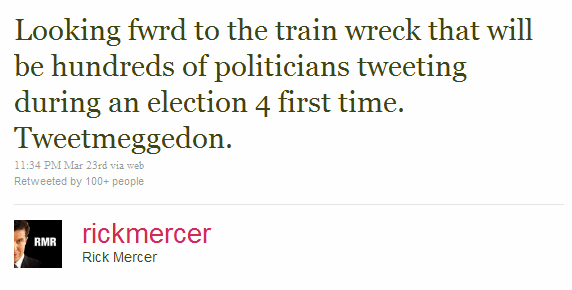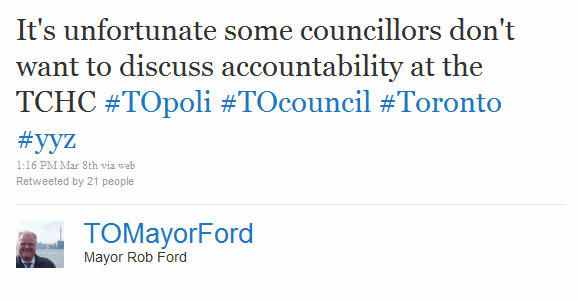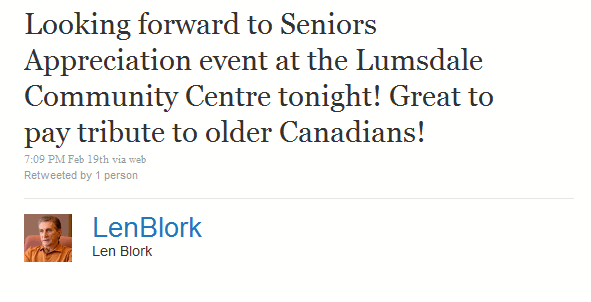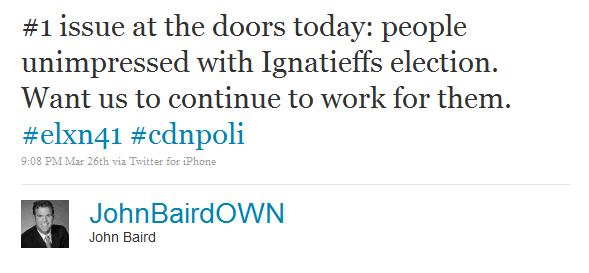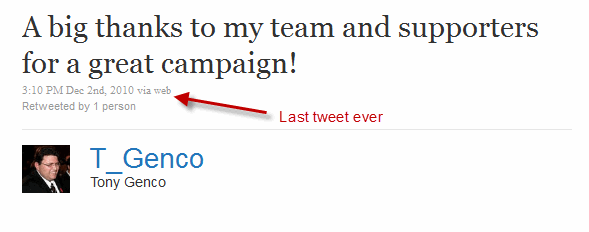During the ill-fated campaign to introduce MMP voting in Ontario, critics often argued that one of the biggest problems with MMP was that it would allow parties to choose candidates, and that that process would be heavily influenced by the party establishment. I found this argument perplexing, since it’s an equally (if not more) valid description of how the current system ends up placing candidates on a ballot and, subsequently, in a provincial or federal seat.
It would be difficult for a reasonable, disinterested person to conclude Craig Scott is anything other than very qualified to be a Member of Parliament. The human rights lawyer has a bio that hits all the right notes: he’s worked for human rights around the world and here at home, recently turned his focus to environmental justice and is active around housing and poverty.
Additionally, at the Toronto Danforth NDP nomination meeting Monday night, he gave the strongest speech, both in content and delivery. He’s able to comfortably speak to a wide range of federal issues without sounding like he’s just reciting a list of talking points. Verbal cues, like a nod to “evidence-based policy,” hint that there is hopefully more depth to his thinking than can ever be fully apparent in a short campaign speech. And he managed not only to move the room of party faithfuls, but also cause this often-NDP-critic to repeatedly nod his head.
In addition to those qualities, Scott brought with him the largest selection of influential NDP endorsements. Backing from impressive individuals like environmentalist Rick Smith, Rev. Brent Hawks and Maher Arar was paired with the green light from his party’s political establishment: current MPP Peter Tabuns, Toronto and York Region Labour Council President John Cartwright and past President of the Ontario NDP and Toronto Danforth Riding Association Janet Solberg.
I do not suggest that any of these endorsements were anything less than honestly earned. They are, however, somewhere between difficult and impossible for another candidate to overcome. In that way—barring a shocking underdog victory—a small group of well-connected people chose Craig Scott as the next MP for Toronto Danforth before the NDP or any other party had even held a nomination meeting.
There are three main ways in which I see these endorsements exerting an influence on the voting membership. Most obviously and legitimately, the approval of respected like-minded individuals makes a candidate more attractive. Party members are very similar to voters in a public election in that they are busy individuals who don’t have a lot of time to fully vet each candidate. In both party and public elections, quality endorsements serve as a helpful shortcut for voters. That doesn’t mean voters will vote strictly based on endorsements, but they’re likely to take well-endorsed candidates more seriously and begin their decision process with a bias towards them.
Further, some endorsements come with critical campaign resources like lists, volunteers and money. Key party and labour individuals have increased access to these resources, which can be deployed to help win both the nomination and the public election. Some savvy voting members may also see the writing on the wall and conclude that nominating a candidate with these kinds of connections is the best way to ensure future electoral success, though that’s more difficult to demonstrate.
Finally, and of greatest concern, is the dissuading effect enough of these endorsements can have on other prospective candidates. Within political parties, prospective candidates who come up against the chosen individual of the party establishment often feel pressure not to run at all, either directly or indirectly. Sometimes those candidates declare themselves and then withdraw (in the federal riding of Toronto Centre, Liberal Rob Oliphant dropped out to support Bob Rae, and, provincially, former George Smitherman staffer Todd Ross dropped out to support Glen Murray when Murray received Smitherman’s nod) and sometimes we never really learn what might have been (many believe that former Toronto budget chief and Liberal party member Shelley Carroll would have run for mayor if the Liberal establishment hadn’t anointed Smitherman instead).
In other words, we know Scott was the best and most qualified candidate on offer to NDP members Monday night, and may end up being the best candidate the residents of Toronto Danforth get to select from when a by-election is called. We don’t and can’t know if he was the best of all the candidates who may have considered a run. And, after all the other parties have gone through a similar process to pick their candidates, voters will get to choose from the candidates the parties have already chosen, never knowing who else might have been on offer.
Reasonable people will disagree on if this really represents a problem and, if it does, how best to fix it. But we should all at least have a better understanding of the process that goes into becoming an MP, especially if we hope to improve our democracy through voting or other reforms. It’s not as straight forward as simply letting the voters decide.
